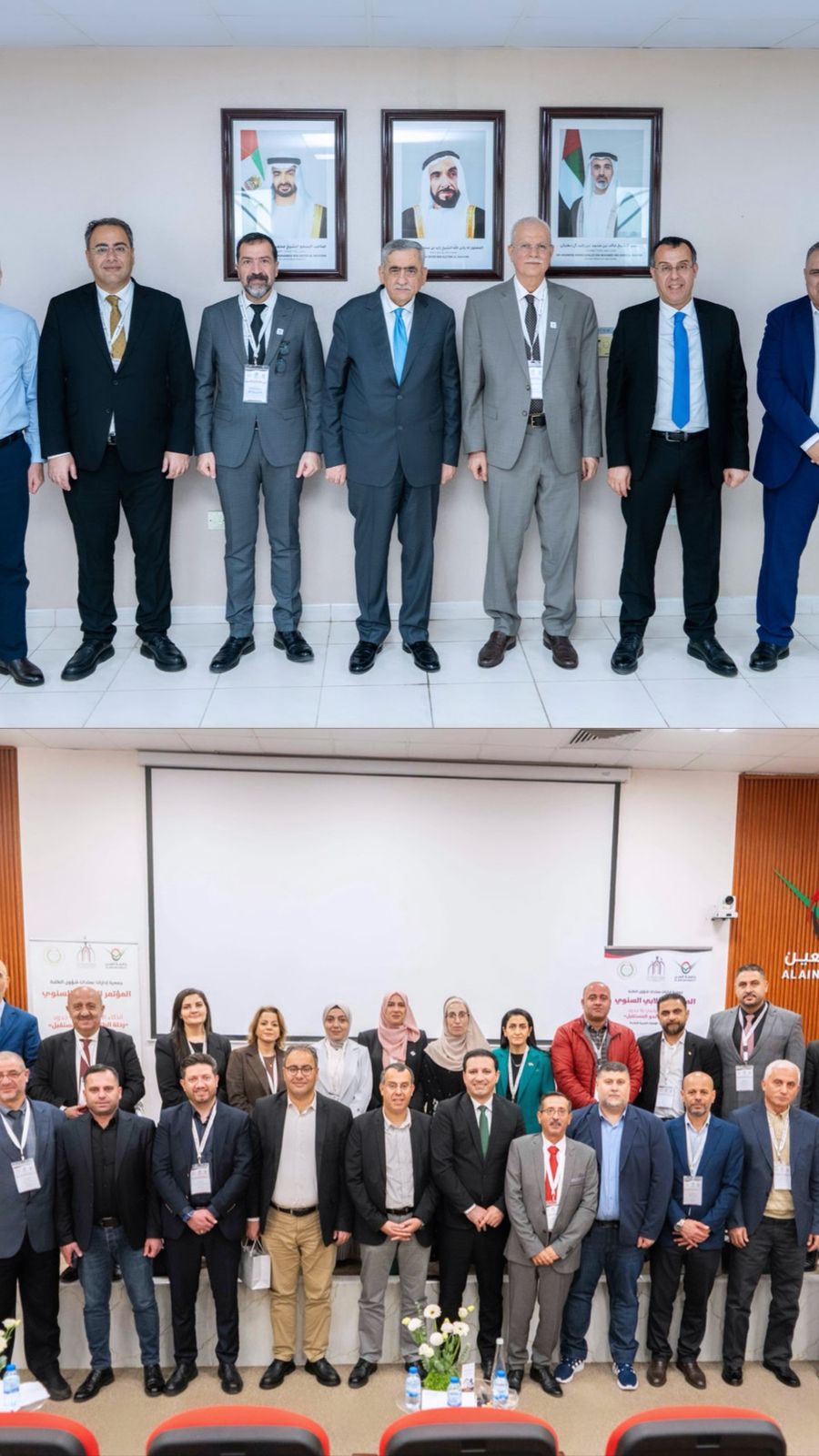Al-Ahliyya Amman University
03 April 2012
Conference on The Media and Society at AAU
Under the patronage of the Minister of State for Media Affairs and Communications, Mr. Rakan Al-Majali, the two-day fifth annual conference of the Faculty of Arts at Al-Ahliyyah Amman University (AAU) was opened in collaboration with the Faculty of Social and Family Development at Al Quds Open University under the title ‘The Media and Society’. In his opening speech, Mr. Al-Majali said that the press and media are no longer the fourth power, but have outranked the other powers by being the weapon used around the clock with a direct impact on our lives. He pointed out that freedom of expression is one of the public freedoms and hence ought to be the privilege of everyone and not to be limited to the media people. AAU president Professor Sadeq Hamid highly praised the efforts of the media, adding that modern technology has empowered the media with special tools that endowed them with unusual strength and momentum, creating this wide gap between themedia and the other three traditional powers, and consequently leaving the legislative power lagging behind, while the judicial power has been lost between them when rules have become unavailable. All of this left the executive power in the unenviable position of being unable to act.The president of Al Quds Open University Professor Younes Amr said that Al-Quds University assigns special attention to the Palestinian society under occupation. The efforts of Al-Quds University are not limited to the 65 thousand students spread from Rafah to Jenin in Palestine. Our participation in this conference is evidence of Al-Quds University commitment to community service. It comes in the way of consolidating joint efforts in the most important domains at the present time. The Dean of the Faculty of Arts, Dr. Fawzi T’emeh, pointed out that Jordan is witnessing numerous developments of goals in its quest to realize the historical demand of living in a democratic environment where citizenship spells equitable rights and duties, this being a fundamental right for constructing communities and modern states. Such demands have been the object of extensive coverage by the media. The head of the conference steering committee, Dr. Azmi Mansour, gave a synopsis of the efforts made by the committee to make the conference what it is today, adding that “We received about 70 pieces of research covering various conference domains, which we classified according to specific standards and presented to the academic committee, where the best in content have been chosen without repetition. Due to the fact that the conference will last only two days, 34 research works have been chosen from 10 Arab countries: Algeria, Egypt, Iraq, Lebanon, Libya Jordan, Palestine, Saudi Arabia, Tunisia and Yemen. Dr. Hafitha Ahmad, chairperson of the opening session, assured that the title of the conference is highly relevant since the media play an effective role in shaping public awareness and attitudes towards numerous difficult issues, especially the march of increasing number of Arabic people for democracy, freedom, pluralism, and civil society. On the first day of the conference 14 papers were presented dealing with the following domains: • First session. Chairperson: Dr. Fawzi T’ema, from Jordan. Domain: The Media between Legislations and Changes.Speakers:Dr. Adel Ziyadat, from Al-Ahliyya Zarqa University. Topic: ‘Media Legislations in Jordan and the Freedom of Press’. Dr. Ahmad Abdelhalim, from Egypt. Topic: ‘Media Ethics’.Dr. May Nayef from Palestine. Topic: ‘Post-Interactivity as Soft Power of Change Management’. She went over the following concepts: Interactivity, Post-Interactivity and Soft Power, using Al-Jazeera Channel as a model of soft power.Dr. Hayat Al-Hweik from Jordan. Topic: ‘The Role of Media Discourse in Shaping Individuals, Society and State’. She took Arabic satellite news channels as a model, emphasizing the role of panel discussions in shaping public opinion.Dr. Abdul-Kareem Qalati from Algeria. Topic: ‘The Role of the Media in Consolidating the Progressive Rule in Algeria’. • Second session. Chairperson: Islam Amr from Palestine.Domain: The Media and the State.Speakers: Dr. Fadl Al-Rba’i, from Yemen. Topic: The Media-State Problematic’, with Yemen as a model.Dr. Muwaffaq Haddadin from Jordan. Topic: ‘The Media and Invisible Hegemony’. He discussed the relationship between that side of power which goes beyond the political to such forms of power as invisible power relations and coercion, political, social, ideological and cultural, official or non-official, and the relationship between the media and society.Dr. Sa’eed Ayyad from Palestine. Topic: ‘Negative Utilization of the Media in Inter-Party Rivalry’. Mr. Kareem Al-Faraji from Iraq. Topic: ‘Role of Advertisement in the Media’. • Third session. Chairperson: Dr, Hisam Ghsaib, president of the Jordanian Philosophical Society. Domain: Social and Political Impact of Media. Speakers:Dr. Raed Nimer from Palestine. Topic: ‘Role of Satellite Channels in Undermining Social Structure’.Dr. Muhammad Sa’d from Egypt. Topic: ‘The Media and Drug Use: TV Drama as a Model’. Mr. Fadil Akl-Rabi’i from Iraq. Topic: ‘The Media and Forming Public Opinion’. He talked about the effect of media in destroying national symbols.





